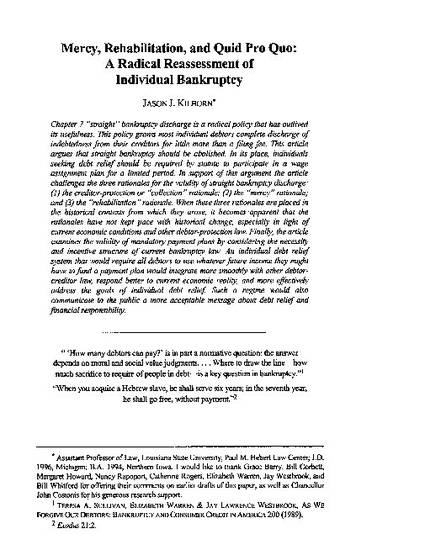
- Bankruptcy Law and
- Law
Chapter 7 "straight" bankruptcy discharge is a radical policy that has outlived its usefulness. This policy grants most individual debtors complete discharge of indebtedness from their creditors for little more than a filing fee. This article argues that straight bankruptcy should be abolished. In its place, individuals seeking debt relief should be required by statute to participate in a wage assignment plan for a limited period. In support of this argument the article challenges the three rationales for the validity of straight bankruptcy discharge: (1) the creditor-protection or "collection" rationale,; (2) the "mercy" rationale; and (3) the "rehabilitation" rationale. When these three rationales are placed in the historical contexts from which they arose, it becomes apparent that the rationales have not kept pace with historical change, especially in light of current economic conditions and other debtor-protection law. Finally, the article examines the validity of mandatory payment plans by considering the necessity and incentive structure of current bankruptcy law. An individual debt relief system that would require all debtors to use whatever future income they might have to fund a payment plan would integrate more smoothly with other debtor creditor law, respond better to current economic reality, and more effectively address the goals of individual debt relief Such a regime would also communicate to the public a more acceptable message about debt relief and financial responsibility
